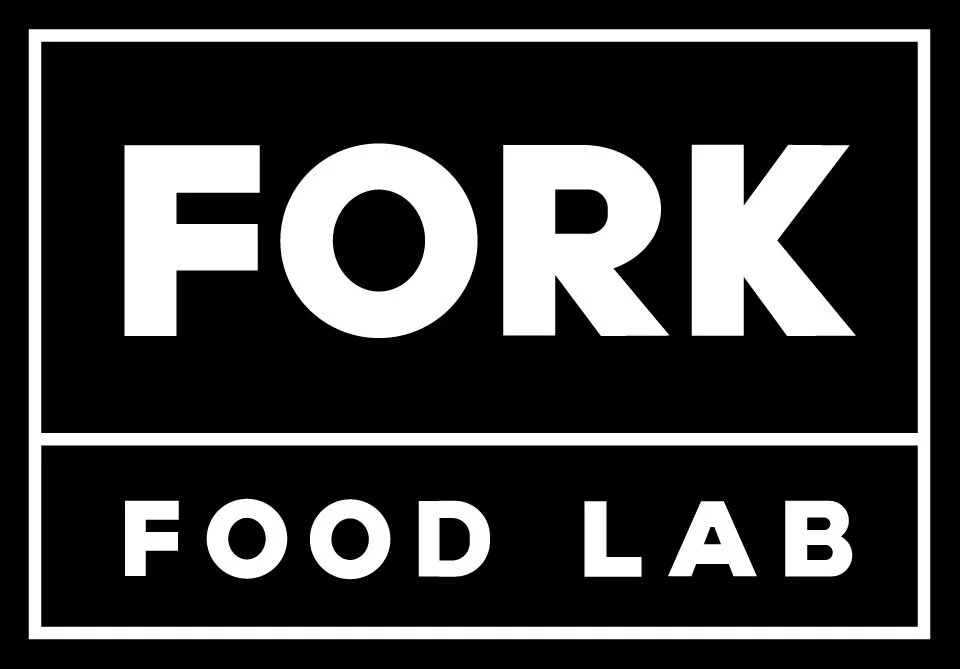Fostering a Local Food Community with Fork Food Lab's Bill Seretta
/A longtime supporter of food entrepreneurs, Bill Seretta got his start working in the restaurant industry before moving on to for-profit and non-profit businesses in human services, environmental education, food service, retail computer sales, Internet services, higher education and business consulting. Now primarily focused on food, Bill dedicates his time to supporting the local food system by creating the Maine Food System Innovation Challenge and taking a role as Executive Director at Fork Food Lab.
Fork Food Lab is a non-profit food business incubator and shared commercial kitchen focused on growing the local food economy. Its mission is to support the growth of sustainable Maine-based food businesses by providing entrepreneurs with work space, equipment, resources and access to locally sourced ingredients.
Continue reading to learn more about food entrepreneurship, creating community connections, and the benefits of a supportive and dedicated food workspace.
As an experienced serial entrepreneur, you know the ins and outs of the social entrepreneurship world. What led you to focus on food business development, and what makes this industry unique?
I look at all businesses through a sustainability lens. “Food business” is the most complex and challenging business one can engage in. Our economy is tied to the production, distribution and consumption of food. Everyone consumes food and drink. When you look at our global ecosystem through a sustainability lens, food touches everything. Food is at the convergence of human activity, the natural environment and technology.
Fork Food Lab supports a variety of food businesses as a non-profit incubator and commercial shared kitchen. What benefits are unique to Fork Food Lab for startups and how do you help accelerate the goals of new companies?
Our primary benefit and what the initial attraction is for new members is access to workspace and equipment at a fraction of the cost of renting and building a private facility. We have conducted a number of interviews with current and past members and the uniform response to this question is the support of the member community. They help each other, offer advice and contacts, use each other’s products in joint marketing and sales events, and initiate group buying opportunities to reduce manufacturing costs. Starting a business can be a very lonely undertaking. The Fork community provides an opportunity to share the ups and downs of starting and growing a business.
The other significant benefit is our focus on helping each member with brand discovery. We work hard at getting each member in front of consumers and buyers as soon as they have a viable product. The feedback from customers and the ability for sales are motivators for members to perfect their products.
COVID-19 has had a profound impact on our food system. How has Fork Food Lab adapted over the last few months to support entrepreneurs through these uncertain times?
We lost about 30% of our members to the impact of COVID-19. They have either gone out of business or are on a long-term pause. On the other hand, inquiries from potential new members are at an all time high. Our staff is spending a lot of time helping members to pivot. For example, many of our food trucks and caterers have one or more popular items that can be packaged and sold retail and through wholesale channels. We are also helping members who had lots of restraint and institutional accounts expand into direct retail sales.
Pandemic-related restrictions continue to prevent opportunities for new brand discovery. How are brands you work with getting creative to spread the word about their products?
Pre-COVID we organized member markets, popup markets, attended several farmers markets and hosted an annual table top show. In mid-March we cancelled all markets and moved to an online market with curbside pickup. Starting on Small Business Saturday we will launch our expanded online market. Order any time with pick up 9-5 Monday through Friday, with special markets scheduled on Saturdays. We have several members on our Board that represent institutional buyers, distributors and small community markets. They are helping us to set up a virtual table top show in late January.
We’ve seen a few food industry trends come and go since the beginning of this year. What are your predictions for trends we’ll see in 2021?
Plant-based; fermented; ethnic; hyper local–in production and sourcing and traceability. The pandemic is rapidly pushing these trends to the norm.
How has being a Branchfood member helped you to connect with the New England food community?
As a member, if you participate in any of Branchfood’s programs you become part of the New England Food community. Lauren’s mission in life is connecting anyone associated with food: producing, manufacturing, marketing, selling, supporting (packaging, equipment, legal) and regulating. You will be connected–for Lauren it is not an option not to be.
How can our audience connect with Fork Food Lab?
Check out our website, follow us on Instagram @forkfoodlab, and connect with us on Facebook and LinkedIn.
Thank you to Bill of Fork Food Lab for being this week’s Member Monday spotlight. Are you interested in how a Branchfood membership can help you succeed? Learn more about our membership benefits, and stay informed with our newsletter. Be sure to follow us on Instagram for our next Member Monday takeover!

























